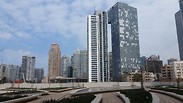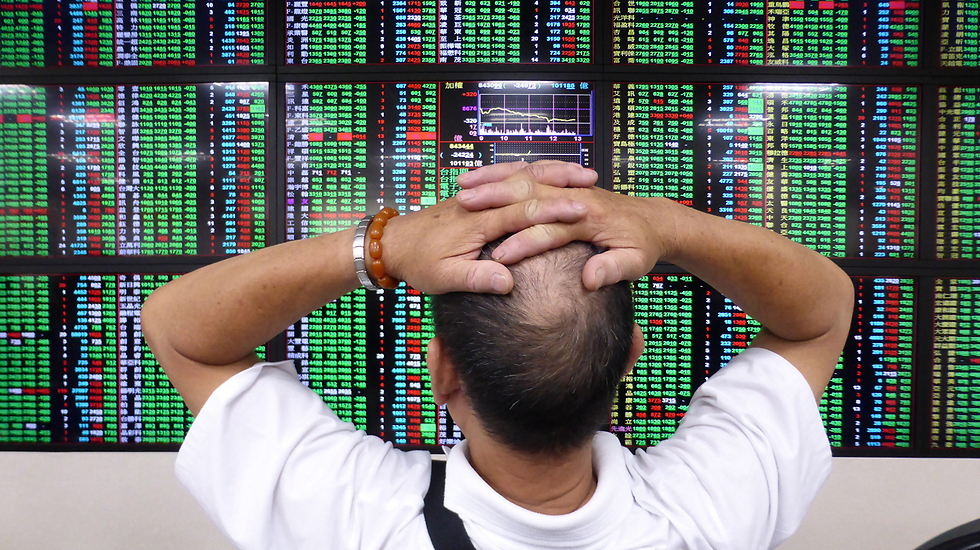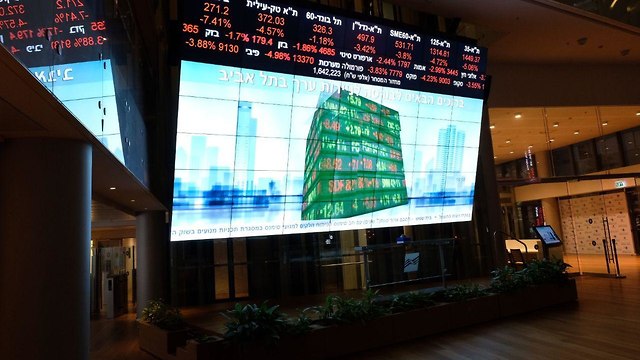
Amid a maelstrom of political instability and a ballooning federal deficit in the United States, Wall Street’s December rout has sparked concerns that world markets could suffer unintended long-term consequences.
Earlier this week, American financial markets experienced steep losses and their worst Christmas Eve declines ever. Some economists in Israel believe a financial storm is looming over the horizon.
“This will be the worst December since 1931, as the S&P is down by (about 15) percent,” said Shlomo Maital, Professor Emeritus at Israel’s Technion Institute and head of the Zvi Griliches Research Data Center at the S. Neaman Institute. “It’s also the worst month since October 2008, the beginning of the financial crash. All the Dow Jones’ gains since September 2017 have been erased.”
Prof. Maital attributes the downturn to a “near-perfect storm” of converging factors: namely, a government shutdown; a slumping Chinese economy; financial turmoil in the European Union; and an inverted bond yield curve which historically has predicted past U.S. recessions.
“All of this creates heavy fog over markets, and investors hate fog,” he added.
The Tel Aviv Stock Exchange (TASE) meanwhile experienced sharp losses, with indices reaching their lowest point this month on Christmas Eve, following the announcement of early elections in April and reflecting the uncertainty on Wall Street.
“Clearly investors in Israel are worried. One cause is the ‘disconnect’ between U.S. stocks having soared far higher than those abroad. Since 2010, American stocks have tripled in value, while stocks elsewhere rose only by 50%. The last time such a ‘disconnect’ occurred was in 1999, before the dot-com bubble burst and before that in 1929,” Prof. Maital said.
A silver lining to this gloomy scenario is the strength of Israel’s central bank, which Prof. Maital referred to as a “pillar of stability and sanity.” Prof. Amir Yaron, the new Bank of Israel (BOI) governor, was sworn in on Monday, in a ceremony attended by President Reuven Rivlin and Prime Minister Binyamin Netanyahu, among others.
“Prof. Yaron is a distinguished scholar and expert on financial markets, and will continue to maintain the bank’s strong independence from political influence,” Maital said. “It is unthinkable in Israel that a prime minister would threaten to fire a governor for raising interest rates, as U.S. President Donald Trump has done.”
Israel’s highly-publicized price increases on basic goods and utilities, which has sparked a furor and prompted a series of protests, are less of a concern. However, Israel’s GDP growth rate has slowed down significantly in part due to decreasing exports, a trend that is likely to continue.
Other economists underline that Israel’s diversified market ensures the country will remain resilient despite potential setbacks abroad.
“The Israeli economy is doing very well and will continue to do so unless there is a substantial reduction in world trade or the geopolitical situation changes, which would be a major impediment,” said Alexander Cukierman, Professor of Economics at Tel Aviv University. “The main factor is the instability that the policies of Trump has injected into the world economy, particularly in areas of trade.”
Similarly, Prof. Zvi Eckstein, Dean of the Tiomkin School of Economics at the Interdisciplinary Center Herzliya, believes President Trump is the primary variable in Israel’s economic equation.
“What we’ve seen is that investors were initially extremely optimistic about Trump’s impact on economic and corporate profits,” said Prof. Eckstein. “It took a while to understand that most of Trump’s policies are not going to deliver and that the president has become more volatile.”
In Prof. Eckstein’s estimation, Wall Street’s downward spiral is a byproduct of investors adjusting their expectations to meet the reality of projected slower growth in the coming year. Nevertheless, he remains optimistic about the Israeli economy and does not believe it has become too reliant on the U.S. for trade.
“I myself don’t predict a recession. The only huge uncertainty is the U.S. president,” he added.
Article written by Julia Altmann
Reprinted with permission from The Media Line


















